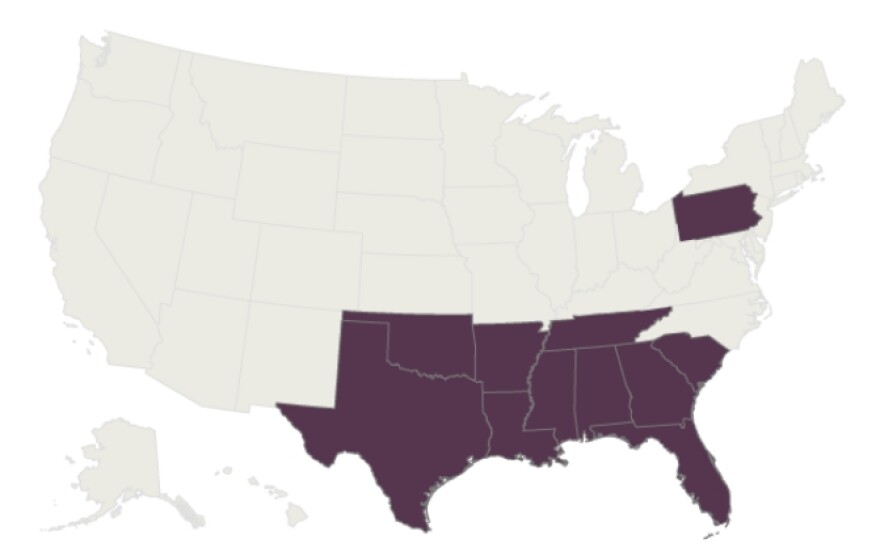The first much-anticipated Supreme Court ruling of the week came down this morning, as justices ruled to send a major Texas affirmative action case with the University of Texas in the spotlight back to lower court. Decisions on same-sex marriage and the Voting Rights Act won’t come today, the trusty Scotus blog reports. In the meantime, let's review some ways these decisions (and the affirmative action case, which is still in play) could affect Texas.
- Wins And Losses In Texas’ Gay Rights Movement: In 2005, Texas became the 19th state to ban same-sex marriage via a constitutional amendment. That came after a sweeping decision by the Supreme Court that struck down all sodomy laws in the state: Lawrence vs. Texas, in 2003. Mitchell Katine, who represented John Lawrence and Tyler Garner in that historic case, predicts the highest court could remove a ban on federal benefits for married same-sex couples when the Defense of Marriage Act has its turn. "It will really move us forward without going all the way,” he told USA Today. See a full timeline of same-sex marriage’s status in the U.S. and the world via CNN.
- Wed In New York, Struggling To Become Exes In Texas: Two men, known as H.B. J.B., got married in Massachusetts back in 2006. Two years later, they moved to Dallas, and sought a divorce. But the Texas courts won’t acknowledge the marriage to see the proceedings through. So how do they file their taxes? Slate explains what legal questions might pop up if DOMA is struck down, and takes a tally of how each state reads same-sex marriage.
- Counting The Ways Texas Is An At-Risk Voting Rights State: Texas’ low voter turnout comes up yet again with Shelby County v. Holder, which could reform Section 5 of the Voting Rights Act. Certain places in the south are now required to get federal permission before they change voting laws. Texas, of course, is covered by Section 5- due to that low participation and its concentration of voting-age citizens who use a language other than English. If criteria change, what could validate Texas’ inclusion in Section 5? Experts have been thinking this through. Texas is one of the “most prejudiced states” according to data compiled by the University of California, Davis, and the University of Connecticut; for one thing. The New York Times made maps that show what Section 5’s stable would look like if voting discrimination suits and such prejudice were considered.
- Affirmative Action, Post-College: President Lyndon B. Johnson was the Texan who pushed affirmative action into mainstream hiring standards. Almost 50 years later, an imminent Supreme Court ruling on whether the University of Texas can keep considering race as a factor in admitting students. The case is a kind of litmus for how effective affirmative action programs have been, as efforts to recruit minorities for high-level positions have dropped off since the recession. And there is less diversity in elite careers like law and medicine as a result. The New York Times’ Nelson D. Schwartz and Michael Cooper look at firms like Thompson & Knight, which offices in Dallas, Houston and Austin. Though the diversity team isn’t as active and the number of black lawyers has dropped, the victories remind of hard-won first steps: managing partner Emily Parker was the first female lawyer hired by the firm in 1973 and became the first woman to helm it last year. [NY Times]
- More To Fisher Vs. UT’s Rise Than Meets The “I”: It all started with Abigail Fisher, the University of Texas hopeful who believes she was discriminated against by its admissions board. Right? Not exactly. Fisher, who’s white, was recruited by Edward Blum, a UT alum who runs the Project on Fair Representation. Nikole Hannah-Jones, a staff writer for ProPublica, gives a play-by-play of Fisher’s move to the center of this debate in the media on Tell Me More - and explains that these big cases often begin by a group finding a plaintiff to voice its concerns.


